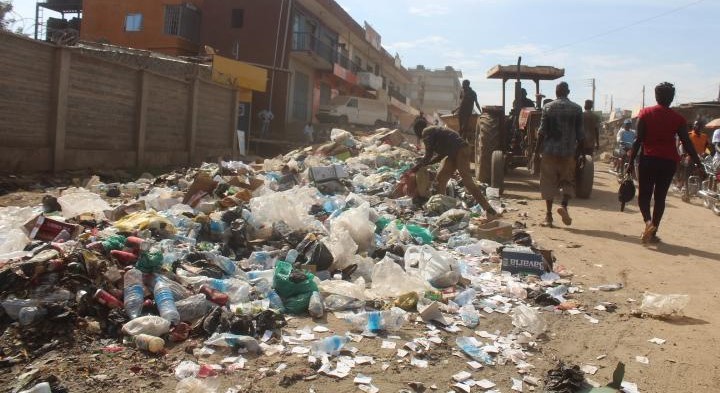Every day, millions of plastic bottles are discarded without a second thought. Whether it is after quenching our thirst with water, soda, juice, or any other beverage, many of us tend to toss the empty bottles carelessly onto the street, into parks, or into open fields. This seemingly small act contributes to a much larger problem—one that threatens our environment, our health, and the future of generations.
Plastic bottles are made from polyethylene terephthalate (PET), a type of plastic that is durable, lightweight, and inexpensive. These qualities make plastic bottles convenient for consumers. However, once discarded, they do not decompose easily. They can take hundreds of years lingering in the environment.
When thrown irresponsibly, these bottles often end up in waterways, forests, and urban drains. They become part of the mounting global problem of plastic pollution. According to environmental reports, over 300 million tons of plastic are produced globally each year, with a significant portion ending up in oceans and landfills. Marine life, from tiny plankton to large whales, mistake plastic debris for food, often with fatal consequences. Birds and land animals ingest plastic fragments, leading to injury, starvation, and death.
The environmental toll is devastating, but it also hits closer home. Improper disposal of plastic bottles leads to clogged drains and increased flooding, especially in urban areas. This can cause damage to property, displace families, and create breeding grounds for mosquitoes, spreading diseases like malaria and dengue.
Moreover, plastics contain chemicals that can leak into water sources and soil, affecting the plants, animals, and humans who rely on these resources.
In Juba, many communities depend on local water bodies for drinking, bathing, and fishing. When plastics flow into these waters, they threaten health and livelihoods. Additionally, plastic waste attracts pests and fosters disease-carrying mosquitoes, increasing health risks for residents.
Every plastic bottle we throw away carelessly is a missed opportunity to contribute to a cleaner, healthier environment. Our individual actions—no matter how small—add up to a collective impact. Choosing to dispose of bottles responsibly, recycle, or opt for reusable containers can make a significant difference.
It is important to recognize that irresponsible disposal reflects a lack of consideration for ourselves, others, and future generations. It is a mindset that disregards the health of our communities and the environment. We owe it to ourselves and our children to be conscious stewards of the environment.
Taking a moment to think about where the plastic bottle we just emptied ends up can be a powerful step toward change. Instead of tossing it onto the street, we can place it in a designated bin or recycle. If recycling facilities are not immediately available, holding onto the bottle until we find a proper disposal point can prevent it from becoming part of the pollution problem.
Education and awareness are key. Many people are unaware of the full impact of their actions. Community campaigns, school programs, and the media can help spread the message that responsible disposal is not just a personal choice, but also a societal responsibility. When we understand the consequences of our actions, we are more likely to change our behaviors.
Making a simple shift in our daily habits can create ripples of positive change. Here are some practical steps we can take:
Use reusable bottles. Invest in a good-quality reusable water bottle. It is environmentally friendly, cost-effective, and healthier than relying on disposable bottles.
Secondly, always dispose of empty bottles properly. Use designated bins and participate in community recycling programs.
Third, spread awareness. Talk to friends and family about the importance of responsible disposal. Lead by example.
Fourth, support legislation. Advocate policies that reduce plastic production, promote recycling, and ban single-use plastics where possible.
Fifth, participate in clean-up drives. Join or organize local clean-up activities to remove plastic waste from parks, beaches, and streets.
Our environment is a gift that sustains us. It provides clean water, fresh air, fertile land, and biodiversity. By choosing responsible behaviors today, we safeguard these resources for ourselves and the future generations.
Imagine a world where streets are clean, waterways are free of plastic debris, and wildlife thrives in healthy habitats? This is not just a dream but also an achievable goal if each of us commits to making responsible choices.
The next time you finish a bottled water, soda, or juice, pause for a moment. Think about where the bottle will go. Will it be recycled and reused, or will it add to the growing mountain of waste? The power lies in your hands.
Small acts of responsibility—disposing of bottles properly, recycling, reducing reliance on single-use plastics—can lead to a cleaner environment. It is about taking ownership of our actions and understanding that our choices today shape the world of tomorrow.
Let us take that moment of reflection and act responsibly. Our environment, our health, and the future of our children depends on it. Together, we can make a difference—one bottle at a time.
The author, Garang Garang Adim, is an environmentalist. He can be reached at garanggarangadim@gmail.com.
The views expressed in ‘opinion’ articles published by Radio Tamazuj are solely those of the writer. The veracity of any claims made is the responsibility of the author, not Radio Tamazuj.




